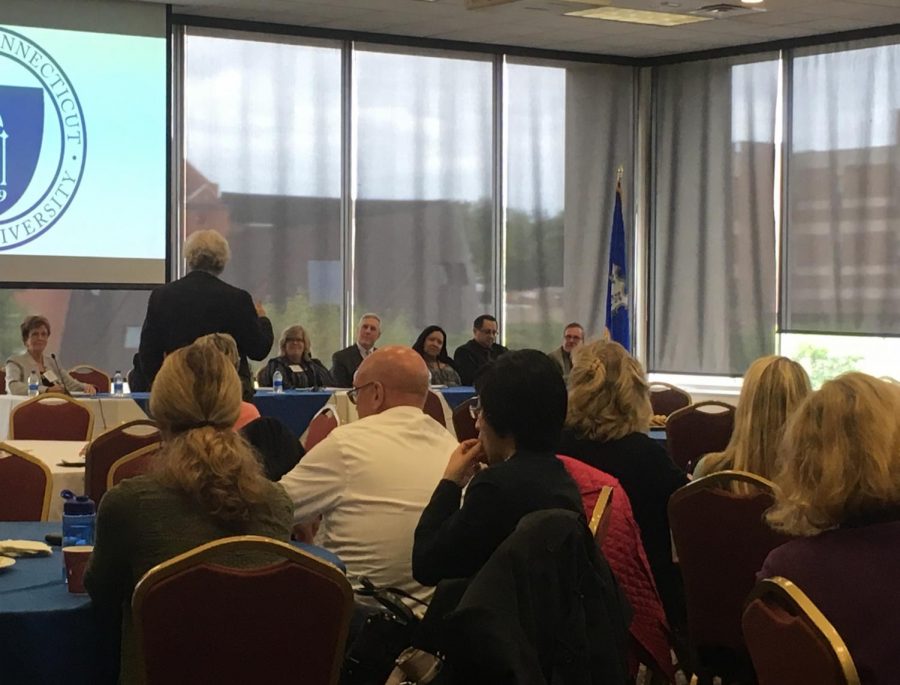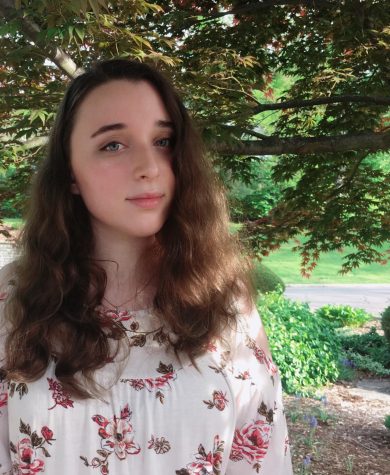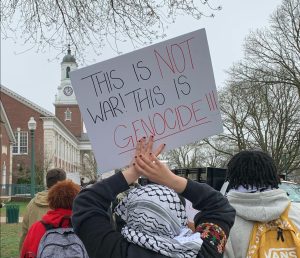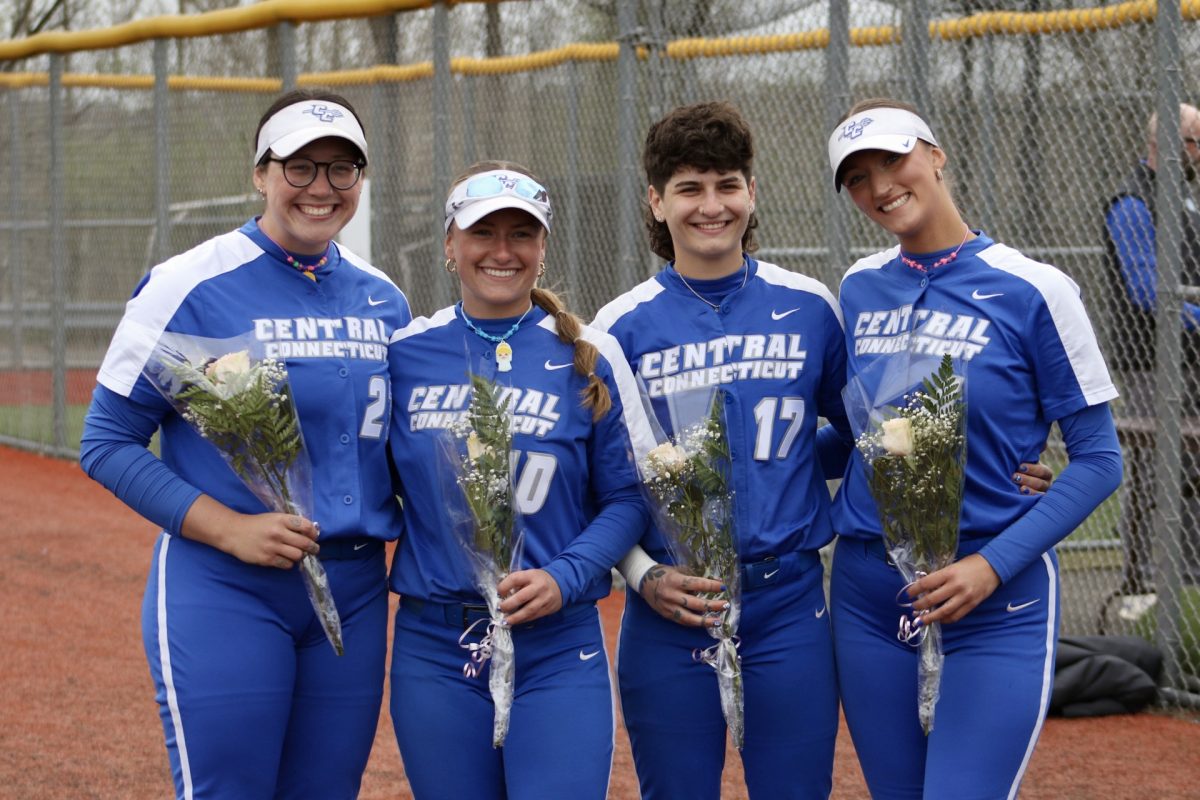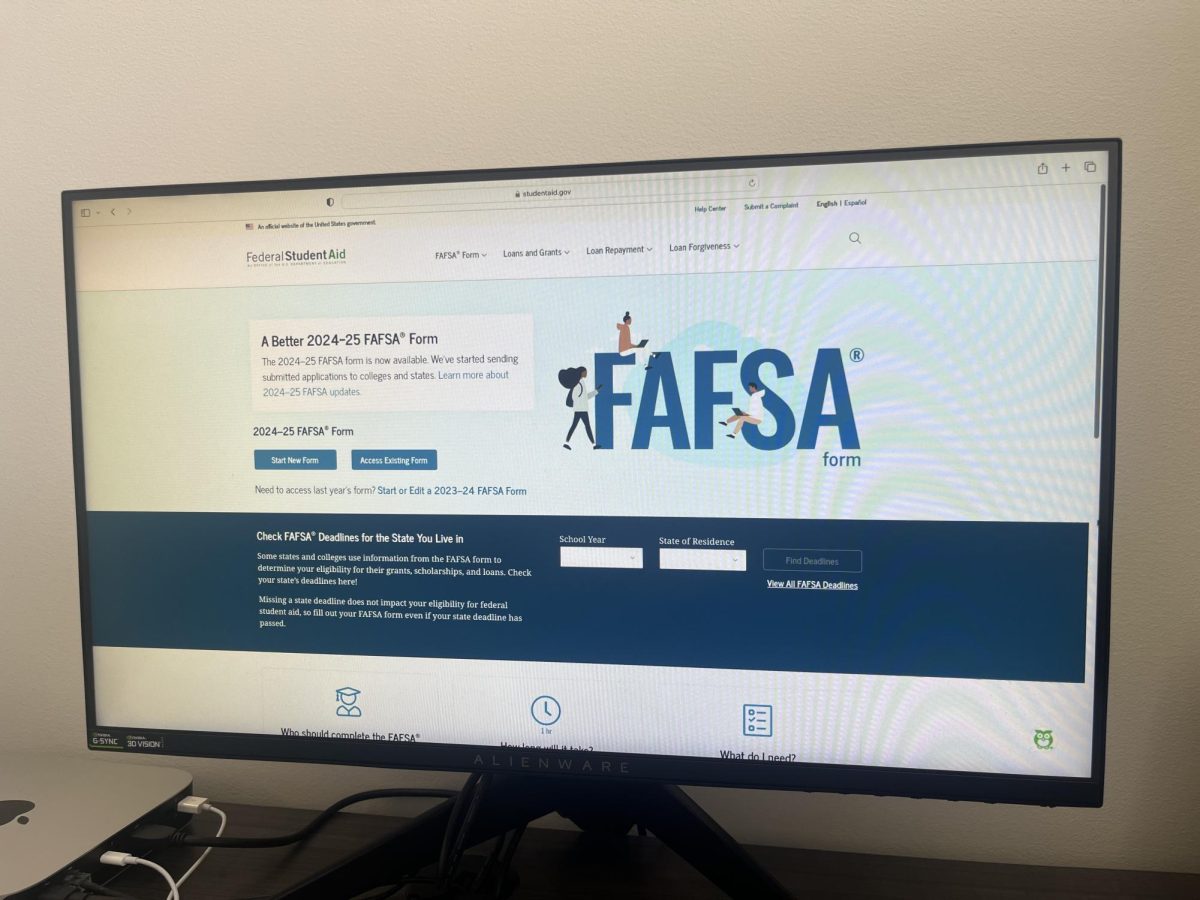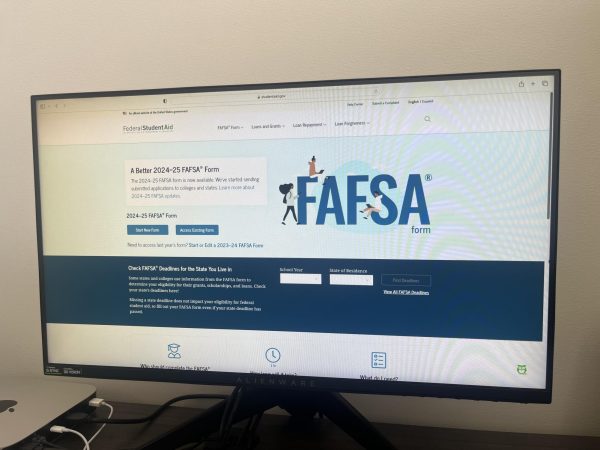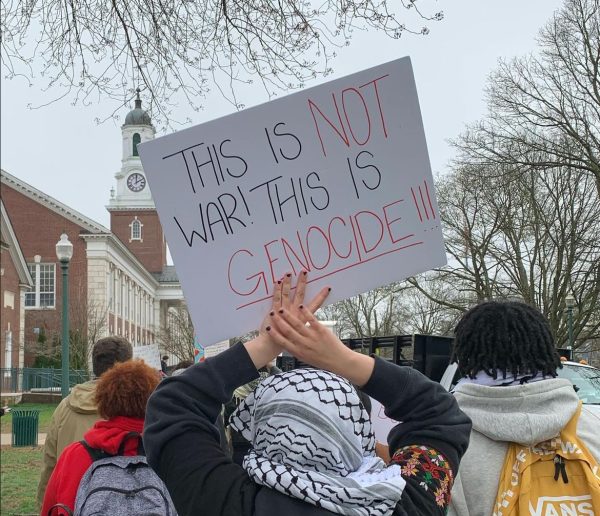Faculty, Senate Attest To CCSU Success To NEASC
CCSU faculty and staff spoke to the New England Association of Schools and Colleges on the university’s accreditation.
September 26, 2018
Central Connecticut faculty and staff gathered Monday to vouch for the university’s accreditation in front of the New England Association of Schools and Colleges committee reviewing the campus this week.
“I can’t think of anywhere else I’d rather spend [my time],” Dr. Kristine Larsen, a professor of astrophysics and astronomy in the geological sciences department who called herself a “proud alum,” told the committee when asked what the “best part” of CCSU is. “The best part of CCSU is our students. We’re very student-engaged.”
“One of the best things for me are our colleagues,” professor of management and organization for 13 years in the School of Business Dr. Drew Harris added on. “I’ve taught at five different colleges, so I’ve seen other places. My colleagues here are remarkable people.”
One by one, faculty and staff took turns stepping up to the microphone to address the committee, expressing their personal positives and concerns regarding CCSU.
The committee was composed of faculty from several institutions throughout New England, including: Chunju Chen from Salem State University; David Espinosa from Rhode Island College; Michael Kneeland from the University of Massachusetts in Worcester; Daniel Reagan from the University of New Hampshire; Sharron Scott from Northern Vermont University; Kara Turner from Morgan State University; Jeannine Uzzi from the University of Southern Maine; Michael Young from Bridgewater State University; and Jacqueline Moloney, the committee chair, from the University of Massachusetts in Lowell.
For Dr. Clifford Anderson from the civil engineering department, who has been here for 14 years, the number of programs at Central, he said to the committee, is great, but also overwhelming.
“We’re so much different than we were 10 years ago. That’s just great. But the challenge is we’re growing—we’re getting to the point where our classes are getting to [over] 30 students, so we [have to accommodate that],” Anderson stated.
CCSU’s connectedness with the community was brought up my multiple faculty and staff members as a significant benefit in the university’s structure. Dr. Serafín Méndez-Méndez mentioned Central’s “quick action” to take in displaced Puerto Rican university students after Hurricane Maria devastated the island and put the future of their education in jeopardy.
“Central allows us to be engaged with our communities, both local and international,” Méndez commented. He went on to voice a grievance, however, that he said affected programs like the one that’d aided the Puerto Rican students. “We come from a state where public education has suffered throughout the years. We’ve struggled to find the funding to offer the wonderful opportunities that we offer.”
Dr. John Tully carried on the sentiment of connectedness, saying that “the connections and services that happen with departments across the campus with not only New Britain, but all Connecticut citizens is really powerful.”
The committee then asked the forum’s attendees to describe how their voices where heard, if at all, and how the university communicated with its community. Lisa Bigelow, director of Institutional Advancement, rose to commend President Dr. Zulma Toro’s openness to share information.
“The campus climate right now is a very collaborative one where information flows in both directions and we feel comfortable expressing our opinions. There’s an opportunity for conversation that has not been possible in previous administrations, in my view,” Bigelow said.
Shuju Wu from computer electronics and graphics technology, concurred, also lauding Dr. Toro’s efforts.
“When something happens on the campus, we just receive an email from the president. We receive her email for so many things. It really means a lot to us. Central has its ups and downs, but if you’ve got a problem, people and administration stand up to solve it. We’ve got such communication in the past two years,” Wu commented.
The open forum ended almost half an hour earlier than scheduled, but Moloney said she and the committee had gotten all of the information they needed. She closed the forum to applause.
